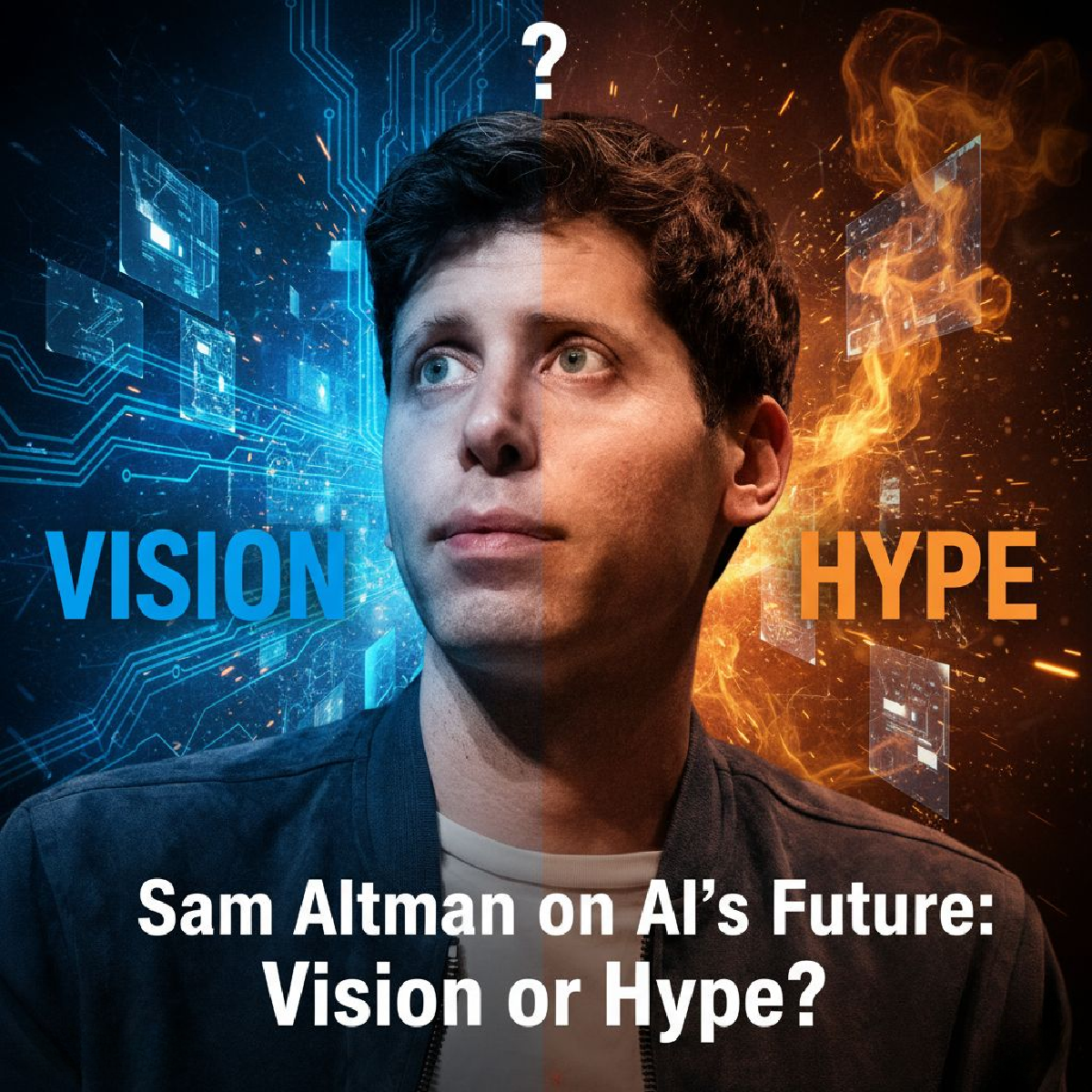Sam Altman sat down for another discussion about AI’s future, and as expected, his vision is ambitious. OpenAI’s CEO predicts rapid progress toward AGI, massive economic transformation, and fundamental changes to how humans work and live.
What He’s Saying#
Altman’s core message: AI progress will accelerate faster than most people expect. Models will get dramatically more capable. Economic disruption will be significant but manageable. The benefits will outweigh the risks if we get the governance right.
He’s particularly bullish on AI’s ability to augment human capability rather than replace it. Knowledge work gets faster and better. Scientific research accelerates. Problem-solving improves across domains.
It’s an optimistic framing. AI as tool, not threat.
The Credibility Question#
Altman runs the company at the center of the AI race. His predictions aren’t neutral analysis. They’re positioned to support OpenAI’s narrative: that rapid AI development is both inevitable and beneficial.
When someone with billions invested in AI advancement says “AI advancement is great and will happen quickly,” take it with appropriate skepticism. He might be right. He’s also incentivized to be right.
What’s Actually Happening#
AI is definitely improving. Models can do things now that seemed impossible five years ago. That progress is real. But Altman’s timeline predictions have been consistently optimistic. AGI is always “closer than you think” in his telling.
The economic transformation part is harder to assess. Some jobs are already changing due to AI. Others seem largely unaffected. The “massive disruption” keeps being predicted but the reality is more gradual.
The Important Part#
Altman’s right about one thing: whether his timeline is accurate or not, AI is reshaping knowledge work. The question isn’t “if” but “how fast” and “what do we do about it.”
His answers favor rapid development with minimal friction. That’s convenient for OpenAI. It might not be optimal for everyone else.
Listen to the predictions. But remember who’s making them and why.
More from OpenAI: Visit OpenAI’s blog for their latest updates.


